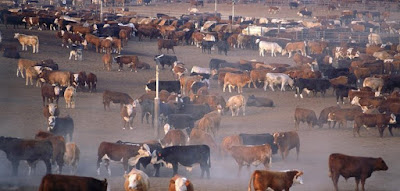Recently I am in a difficult situation in regards to eating
my preferred diet that is high in vegetables, nuts and seeds. I am in Japan and
do not have access to a kitchen or any of my supplements (wheatgrass powder,
spirulina, spices, etc.). And I also have to limit my food choices to what can
be eaten without preparation.
The biggest drawback in regards to Omega-3 to Omega-6 ratio
here is the unavailability of flaxseeds. I have only found a small package of
roasted flaxseeds (50g) for an incredible sum of 7€. So flaxseeds are out.
I am therefore consuming the most available nuts, which are
Walnuts and Peanuts. Those are relatively affordable but come with a very high
omega-6 content. The body has a hard time handling an excess of omega-6 fatty
acids. To generate energy from polyunsaturated fatty acids requires additional
enzymatic steps to first turn them into saturated fatty acids. Therefore
suddenly increasing ones consumption can overload those pathways.
The body tends to use them also in other enzymatic pathways
with unfavorable outcomes. One of those pathways leads to arachidonic acid.
Arachidonic acid is naturally found in animal sources of fat. But the body is
capable of producing the amount he requires on his own. Arachidonic acid is
usually associated with pro-inflammatory reactions. But it is also found in
high quantities in the brain.
And this is the part I am interested in right now. With this
self-experiment I am forced to conduct at the moment, I want to find out what
effect high amounts of Omega-6 fatty acids have on my body. And I can judge
from the first 3 weeks of eating this way that it generates a mental state that
is highly uncomfortable at times.
After consuming a meal high in omega-6 I feel a change in my
mood. I get an overall depressed outlook on life, no matter what situation I am
in. Notice that those Omega-6 fatty acids come from whole foods. Most of them
from raw, soaked walnuts. But also from roasted peanuts. I would say based on
other research that looked into oxidation during roasting of whole flaxseeds,
which showed no oxidation, that those fatty acids where also not oxidized.
My conclusion from this experience is therefore that it is
important to limit the overall quantity of Omega-6 in once diet. This is
probably more important than the ratio of Omega-3:Omega-6. High amounts of
Omega-6 can not be offset by increasing Omega-3. That is at least my
experience.
The reason for that is also that the body can only handle a
certain amount of polyunsaturated fatty acids well. Above a certain level the
fatty acids might get used in unfavorable enzymatic pathways leading to
inflammation. Additionally the polyunsaturated fatty acids themselves are
susceptible to oxidation. So they can easily generate free radicals in the
body, damaging tissues and consuming up a lot of important anti-oxidants like
vitamin e.
So when I have the chance again, I am going to limit my
consumption. This means eating more coconut, hazelnuts, almonds, macadamia
nuts, flaxseed and less walnuts, peanuts, sunflower-seeds.




